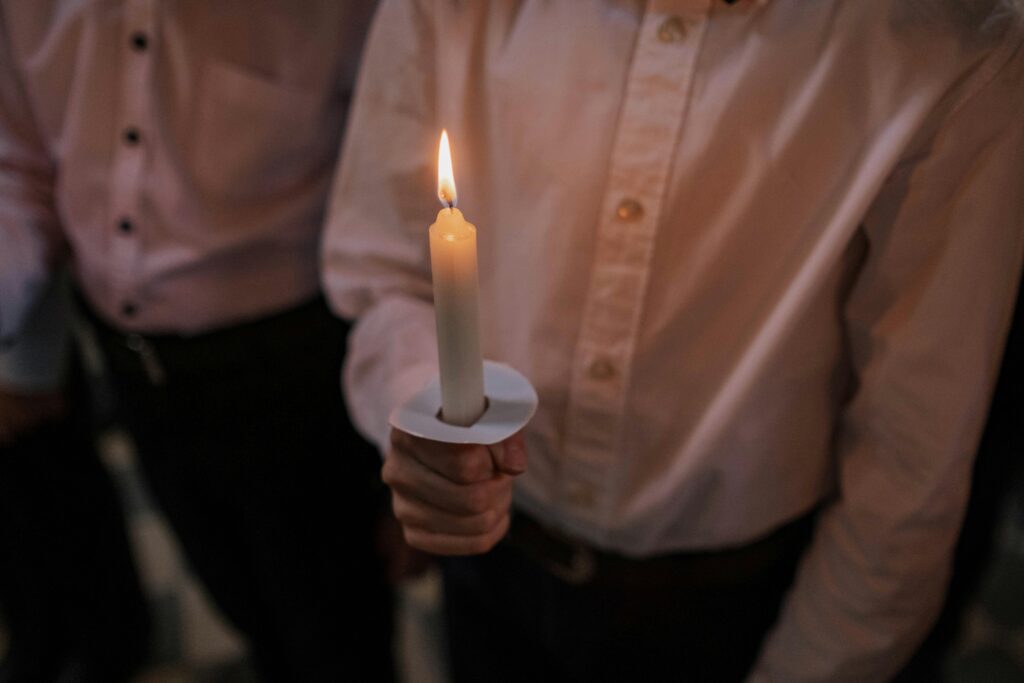If God exists, not everything is permitted
I was familiar with the film The Third Man (1949) by Graham Greene (1904-1991), whose script he wrote. In a newspaper article, I found a reference to his novel The End of the Affair (1951), which was enough to encourage me to read it (Libros del Asteroide, 2019). The first third of the novel tells […]

I was familiar with the film The Third Man (1949) by Graham Greene (1904-1991), whose script he wrote. In a newspaper article, I found a reference to his novel The End of the Affair (1951), which was enough to encourage me to read it (Libros del Asteroide, 2019). The first third of the novel tells of the affair between Maurice Bendrix and Sarah Miles, married to Henry Miles, an important English civil servant. The romance is ended by Sarah. Two years after the breakup, when reading Sarah’s diary, Maurice finds out why she ended the relationship. This is when the story takes a profound turn, revealing the vital density of the female character.
The affair takes place in the last years of the Second World War. On one of those afternoons of meeting, a bomb explodes in Bendrix’s apartment. Sarah makes a promise to God: if she saves him, she promises to end the relationship. And indeed, although the damage caused by the explosion is great, Bendrix escapes death. Neither of the characters is a believer, Sarah, neither; but in the moment of danger they go through, she feels the impulse to pray on her knees for the life of her lover: “I love him and I will do anything as long as you allow him to live. I said very slowly: I will leave him forever if you allow him to live and give him a chance (…). And then he appeared at the door, and he was alive, and I thought: now begins the agony of having to live without him” (p. 150). With a torn heart, she says: “When I ask you for pain, you give me peace. Give it to him too. Give him my peace, since he needs it much more than I do” (p. 142).
Sarah wants to keep her promise, but it is difficult for her. She attends some talks by a rationalist to convince herself that God does not exist, that there is no life beyond this one; therefore, the right thing to do is to live today, now and that’s it. However, instead of extinguishing her faith, it is strengthened. She decides to become Catholic and begins to receive catechism. She discovers the love of God, compassion, pain: “You could have killed us with happiness, but you prefer that we reach You through pain” (p. 190). The moral dimension of human existence becomes more evident to her, inviting her to try to do good and avoid evil.
In contrast to Sarah’s vital conversion, I remembered Dostoevsky’s novel The Brothers Karamazov, one of whose recurring themes is the ethical density of human conduct. Along the lines of “I do whatever I want,” Ivan Karamazov states: “If God does not exist, everything is permitted.” If there is no God, nor immortality of the soul, then everything is permitted, goodbye to promises and fidelity, Castilla is wide open. Sarah, on the other hand, by letting her conscience surface, poses life with a different sign: if God exists, then not everything is permitted. The consequences of this assertion permeate all dimensions of human life. The commandments of God’s law, the importance of keeping one’s word, respect for the dignity of one’s neighbor, the promotion of human goods, and the free acceptance of the creaturely condition of the person become relevant.
Sarah dies prematurely. Bendrix cannot get used to the idea and perceives that God is also around him. “Because if this God exists, he thought, and if even you – with your lust and your adulteries and your timid lies that you used to tell me – could change so much, we could all become saints just by taking the same leap that you took (…). And that is something that He can ask of all of us, to take the leap, only I will not take it” (p. 298).
Who knows, Bendrix. Faith is a gift, a present. God continues to knock on the door of the heart of every human being. He has the patience, the love and the fidelity that we lack. He created us free and never stops holding out his hand to us to take the leap again and again throughout life.
Related

Cardinal Arizmendi: Beware of Artificial Intelligence!
Felipe Arizmendi
09 April, 2025
5 min

Revolutionize Celebrations
Mar Dorrio
09 April, 2025
2 min

Reasonable Answers About Our Faith
Mario J. Paredes
09 April, 2025
5 min

Sensitivity in a Managerial Key: The Forgotten Muscle of Meaningful Leadership
Alejandro Fontana
08 April, 2025
3 min
 (EN)
(EN)
 (ES)
(ES)
 (IT)
(IT)

